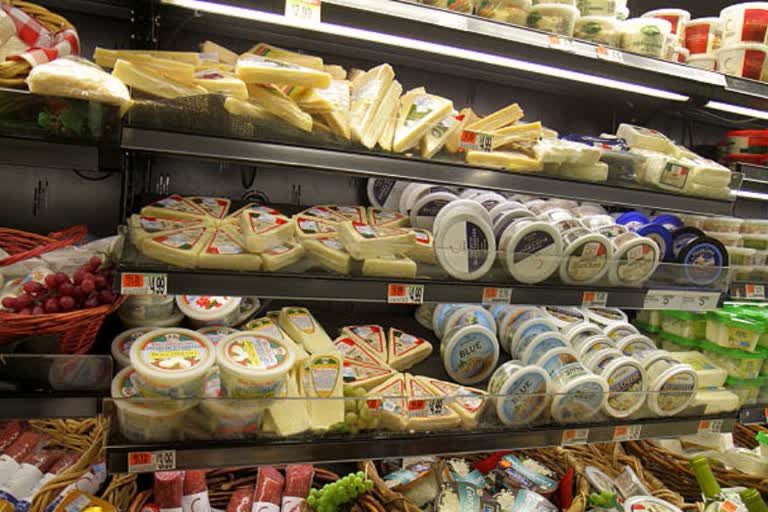New Delhi:Food regulator FSSAI will write to the GST council to remove tax on packaged milk products to boost sales as it found quality and hygiene concerns in recent sample testing of milk products that were sold loose in the retail market, its CEO Pawan Kumar Agarwal said.
At present, milk products attract 5 per cent GST, he added.
Releasing an action plan to ensure quality and safety of milk and milk products on the National Milk Day, Agarwal announced that the Food Safety and Standards Authority of India (FSSAI) has provided testing equipment to states for increasing surveillance and enforcements.
It has decided to launch a scheme to verify one lakh milk vendors, out of 25 lakh such vendors across the country.
He said the registration of milk vendors has already been mandatory under the Food Safety and Standards Act but not more than 5 per cent vendors have compiled.
"Milk and milk product safety is our high priority. We have prepared a comprehensive action plan to deal with quality and safety concerns."
"We are targeting to verify one lakh milk vendor to begin with. Based on the success, this can be made mandatory," Agarwal told reporters here.
Under the 'Verified Milk Vendors Scheme' to be launched in one-and-a-half months, milk vendors can voluntarily register through online registration portal and would be provided photo-identity card and properly calibrated lactometer.
Training would be imparted on clean milk practices with periodic sampling and testing of their milk. The hot spot areas identified would help stringent enforcement/ surveillance activities.
Read more:Indian states face challenges in reducing deficits: Moody's
The FSSAI has chalked out this action plan based on the findings of the national milk safety and quality survey report which revealed that only 7 per cent milk samples had contaminants or adulterants that rendered such milk unsafe. Recently, it carried out another survey on milk products.
"The results of 399 samples analyzed so far (out of total 1,048) indicate only quality and hygiene concerns in milk products. Major quality concern observed is adulteration with vegetable fats with no concern about presence of heavy metal contaminants. Microbiological concern observed relates to poor hygiene while no bacterial pathogens have been found," Agarwal said.
Taking into consideration the results of both the surveys and available testing infrastructure, a 12-point action has been drawn up to ensure safety and quality of milk and milk products in the country.
These actions are broadly in three areas, namely – testing and continued surveillance; preventive and corrective action for implementation and monitoring; and consumer engagement.
For testing and continued surveillance and to upgrade testing infrastructure, several rapid testing and high-end precision test equipment have been provided to States/UTs.
In addition, the FSSAI has notified NABL-accredited private and other public food laboratories for primary, regulatory and surveillance testing which can be used by the States/UTs to complement testing by state laboratories.
As aflatoxin-M1 and antibiotic residues emerged as a major contaminant in milk, various preventive and corrective action are proposed for the stakeholders in milk sector. There is need for extensive capacity building at primary production levels for following Good Dairy Farming Practices through focused training programs in the areas of animal husbandry, animal health and Feed and nutrition.
The FSSAI said it has noticed quality issues in milk mostly related to the proportion of fat and solid non-fat (SNF) which varies widely by species and depends on breed as well as the quality of feed and fodder.
This can be improved by proper feeding of Cattle and adopting good farm practices.
Stating that survey revealed that even processed milk has both quality and safety concerns, he said the FSSAI has developed and released a harmonized Scheme of Testing and Inspection (STI) to be adopted by dairy processing plants for the purpose of monitoring and self-compliance throughout their production chain in order to strengthen their internal controls.
To build consumers trust, he said consumer awareness and engagement programmes will be organised throughout the country.
